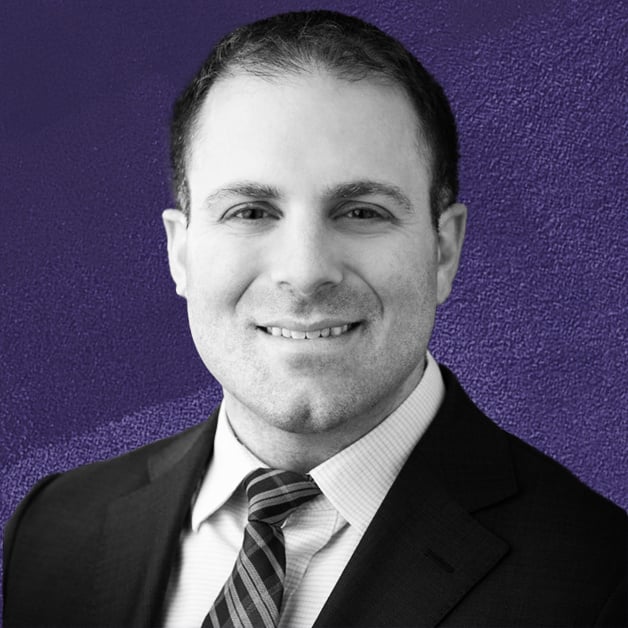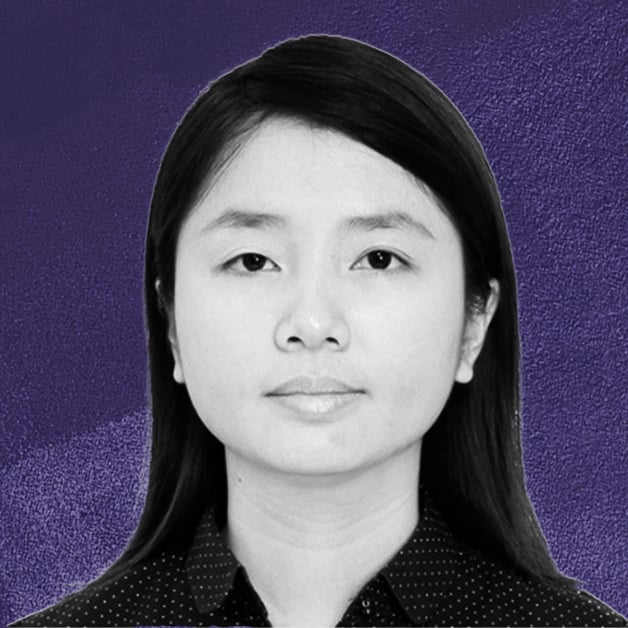
Darby Joyce
Content Marketing Coordinator
Disclaimer: The views expressed in this article are those of the individual employees and do not represent the official stances of the United States Department of Commerce or USAID.
When thinking about what to do with a business degree, a role in government may not be the first thing that comes to mind. But each agency in DC needs all types of expertise to function—and often, a business perspective can help answer big-picture operational and management questions in a new and innovative way. The Kogod School of Business’s location in the heart of DC gives students a unique opportunity to connect with leaders in government through networking, internships, and consulting work that can lead to impactful work after graduation.
We caught up with two Kogod alums—MBA alum Sam Schofield and MS in Analytics alum Milly Nguyen—to talk about their current roles in government agencies, what they enjoy about their work, and how Kogod helped them reach their career goals.
Sam Schofield: International Trade, AI Governance, and the Importance of Perspective
Though MBA alumnus Sam Schofield always had some interest in government work, he began his post-graduate career in the private sector. As a strategy consultant at Deloitte, he worked with clients within the US Department of State to modernize systems and improve operational processes necessary for core functions like processing visas. Now, as a senior policy advisor for the US Department of Commerce, Schofield says that his time at Deloitte was crucial for building perspectives and enabling creative problem-solving.
The Department of Commerce has a very diverse set of backgrounds. It’s not all career government people; there are a lot of people like me who were in other roles and industries first.”

Sam Schofield
Senior Policy Advisor, United States Department of Commerce
“I think that diversity of backgrounds enables a lot of creative thinking and innovation," he explained.
Schofield works on Commerce’s Global Data Policy team within the Office of Digital Service Industries. His responsibilities include data collection and analysis, negotiating regulations, and supporting US companies in their forays into international markets. He joined the agency in March 2020, motivated by the fact that the role seemed like a perfect match for his skills. Between his time consulting at Deloitte, his experience with international clients, and his interest in leveraging his MBA in his work, pursuing the job was an easy choice.
“I always had an interest in international trade at the macro level and the conditions that need to be facilitated for US companies to be competitive in key foreign markets. I also had a good background in this area of services, trade, and emerging technologies,” Schofield said. “A lot of my skill sets came together and made me a good fit for this role.”
More recently, Schofield’s role has included analysis of artificial intelligence (AI) and its growing role in international trade. He serves on the US delegation to the intergovernmental Organization for Economic Cooperation and Development (OECD), where he works on three distinct committees to develop policies related to AI governance. He says it’s not only exciting to discuss the role AI will have on the future of business but also critical to do so.
“With the release of generative AI applications like ChatGPT, we have a really valuable set of services that can make our lives more efficient. But there are also a lot of safety risks between the automated scraping of data that we’re not aware is happening and all of the ways that nefarious actors can manipulate generative AI systems to produce harmful content,” Schofield said. “So, a big area of discussion is how to regulate these systems because they will be part of our daily lives.”
Among the current discussions surrounding AI at the OECD are intellectual property concerns, particularly involving creative work. Though generative AI programs can now create music, images, and written works, debate often arises over who gets credit for that content—the program itself, the person who generated the prompt, or the creators whose data was used to train the program.
“Intellectual property rights are a big concern right now,” Schofield explained.
How do we address the scraping of copyrighted information off of the internet or the use of someone’s intellectual property that they did not authorize to go into an AI system?”

Sam Schofield
Senior Policy Advisor, United States Department of Commerce
As big as these questions are, their importance is exactly why Schofield enjoys his work. Just as the Department of Commerce gains perspective from having employees from different sectors, the discussions around AI involve many different voices to ensure that the issues are approached from all angles.
“I get to be a part of these cutting-edge conversations,” Schofield said. “We’re not just getting input from policy advisors like me, but also technologists and technical experts, people from academia, people from business, and people from civil society.”
Milly Nguyen: Keeping Medicine Moving on a Global Scale
MS in Analytics alumna Milly Nguyen stayed particularly busy during the COVID-19 pandemic. As a logistics procurement analyst for USAID, she analyzes and optimizes global healthcare supply chains to support timely international shipping and distribution. During the pandemic, she and her team worked alongside vaccine developers to move vital healthcare products around the world.
“We became an essential part of not just the US’s response but also an international defense against COVID,” Nguyen recalled. “But even before COVID, we’ve been doing a lot of research on different global healthcare perspectives, and my job is to ensure that everything gets delivered on time.”
Like Schofield, Nguyen didn’t begin her career in government, or even in business, for that matter. After earning her MA in international journalism from the University of Sussex in the United Kingdom, she returned to her home country of Vietnam and worked in television. Once she moved to the business side of the industry, she took an interest in data science, ultimately deciding to head to the States to continue her education.
“Around 2017, everyone was focused more on data science,” she said. “So, I decided to move to DC to get a master’s in business analytics, since that was exactly what I wanted to do with data. I wanted to understand how to apply data science to business contexts.”
Transitioning into the high-stakes world of global supply chains wasn’t easy; as Nguyen explained, she needed to learn the ins and outs of a brand-new industry in her first six months at USAID. Her Kogod education prepared her by developing her data science knowledge and focusing on real-world applications. Those applications translated well into international logistics work, where the context is just as important as the data itself.
Data isn’t only the number on the surface. We have to understand the story behind it."

Milly Nguyen
Logistics Procurement Analyst, USAID
“You have to know the conflicts in the area, the local salary, how to work with local governments. We need to have a general knowledge of everything so that we can integrate it into our analysis," Nguyen said.
The lessons Nguyen learned from her time at Kogod stuck with her, as did the people she learned from and with. Between the mentorship she received from professors like Alberto Espinosa and Frank Armour and her memories of leading Kogod’s data analytics club, her continued involvement with the Kogod community stems from a desire to give back to the school that so meaningfully supported her career journey.
“I’m so grateful for the knowledge, the experience, and the good times I had at Kogod. It was a very welcoming and friendly environment,” she said. “I try to come back to AU when I can to pay it forward.”
Read more alumni success stories on the Kogod School of Business Student Outcomes Hub.
